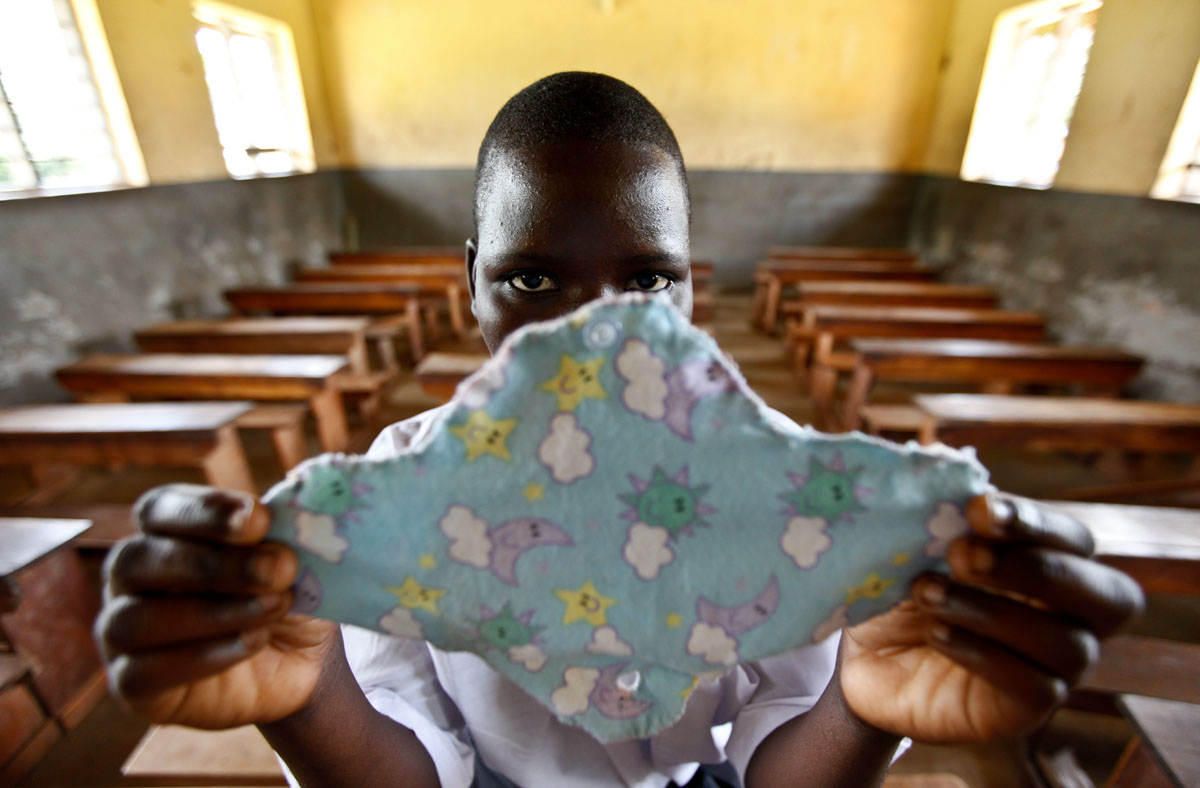From 25 November, the International Day for the Elimination of Violence against Women, to 10 December, Human Rights Day, the campaign on 16 Days of Activism against Gender-Based Violence will galvanize action and support from gender rights advocates and social justice movements to end violence against women and girls around the world.
The international campaign originated from the first Women’s Global Leadership Institute coordinated by the Center for Women’s Global Leadership in 1991.
Due to the increasing cost of sanitary towels, some girls, especially those in rural areas and from economically disadvantaged backgrounds, resort to using absorbents such as dirty rags, cotton wool, leaves and paper.
Aside the fact that the neatness of these absorbents cannot be guaranteed and could cause diseases and infections to girls, most often they leak and soil themselves (their uniforms for girls in schools).
The embarrassment these girls face as a result of soiling their uniforms during their periods causes them to miss school, which ultimately affects their academic performance. Research carried out in Ghana and Kenya have revealed that providing sanitary pads for girls and giving them skills to make their own pads will improve school attendance for these girls challenged by this natural happening.
Kenya has recorded good results from providing free sanitary towels for girls aimed at encouraging school attendance during their periods, thereby removing menstruation as a barrier to girl child education. Would Ghana do same?
How committed are our leaders to the 16 Days campaign on violence against women and girls? While first ladies in Africa and the developing world, including Ghana, have openly supported the campaign and shown some concern to the plight of women, their efforts have not affected direct policies and programmes such as calling for the removal of tax on sanitary pads to make it affordable to girls and women.
According to the 16 days evaluation report; “all the years spent fighting to raise awareness about gender-based violence has not brought about the desired lasting and fundamental change. It has brought about radical cultural shift, we hoped it would, and it has not made gender-based violence a universally unacceptable act.”
This is because we have not moved beyond the rhetoric to confront the problem with practical programmes and policy interventions. We envisage a radical move beyond the use of hashtags and call for accelerated concrete ACTION to impact positively the lives of girls and women.
The Ghana Revenue Authority classify sanitary pads as luxurious items which should attract a 20% import tax levy. This affects negatively the cost of sanitary pads, and other essentials necessary for women’s hygiene during mensuration.
How do we campaign to end violence against women and associated problems such as child marriage, teenage pregnancy and other cultural and traditional acts of violence when an essential product such as sanitary pad has been wrongfully classified to attract tax? Until we waive taxes on sanitary pads and institute proactive policy and programme interventions, gender-based violence and related challenges will persist.
The campaign on 16 days of Activism Against Gender-Based Violence has raised enough awareness and achieved the needed awareness creation momentum. It is time to move beyond words and ACT.
Statement by J Initiative from Ghana



